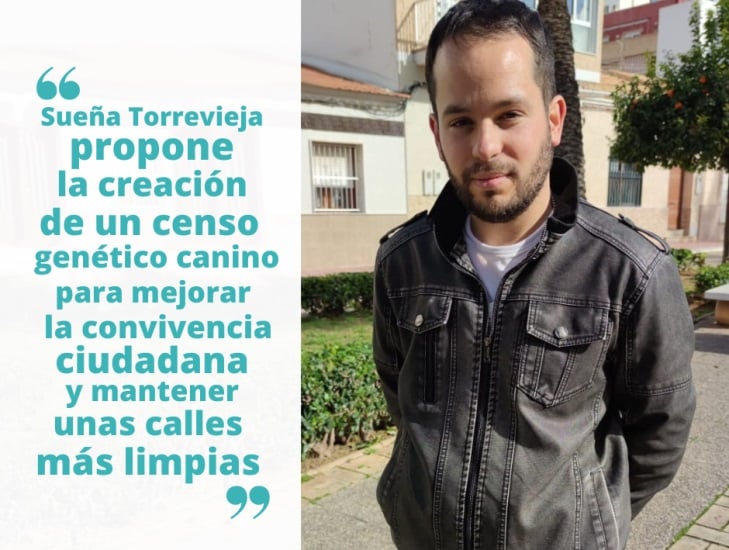As part of their plans to do well in the municipal elections, Sueña Torrevieja is proposing the creation of a canine census in the town, which, through genetic identification, has advantages for all those involved in addition to helping to keep the streets cleaner, healthier and with a better image due to the absence of faeces.
DNA fingerprinting would not only serve to punish offenders but would also help recover lost pets and prevent abandonment or removal, they say.
Alejandro Martín, head of the Electoral Program of Sueña Torrevieja, indicates that “town halls of various municipalities in Spain have already tried this method and report an 80% reduction in faeces abandoned on public roads just a few months after the entry into force of the measure”.
Martin assures that, “Torrevieja will be a cleaner and healthier city, because it ends the typical “all dog owners are equal” (since now only those who have uncivil behaviours are “marked” and sanctioned) and because in case of loss or theft of your pets, their DNA fingerprints can significantly contribute to their search”.
In addition, Martín affirms that the creation of the DNA genetic census helps to “improve coexistence and the image of your city, being the ideal complement to the current microchip census system, by making the identification of the animal always 100% reliable”.
“It also increases the cleaning of public roads by having the genetic fingerprint of the pets of a locality, it is possible to compare them with the abandoned faeces found on the public road, enabling the identification of the offender”.
And finally, “it controls the abandonment of animals, since in many cases the owners remove the microchip from the pets before abandoning them to prevent them from being located. With the DNA, even removing the microchip, it is possible to identify the animal and owner”.
Pablo Samper, candidate for mayor of Sueña Torrevieja, concludes by stating that ” the canine genetic census is a commitment to welfare and against animal abuse. With this new system, owners cannot abandon their pets, because no matter how much the microchip is removed, they can be identified by DNA. In addition, DNA samples also make it possible to trace, through affiliation and kinship, the perpetrators of the abandonment of litters and pups not yet registered, or of the mistreatment of these animals”.





